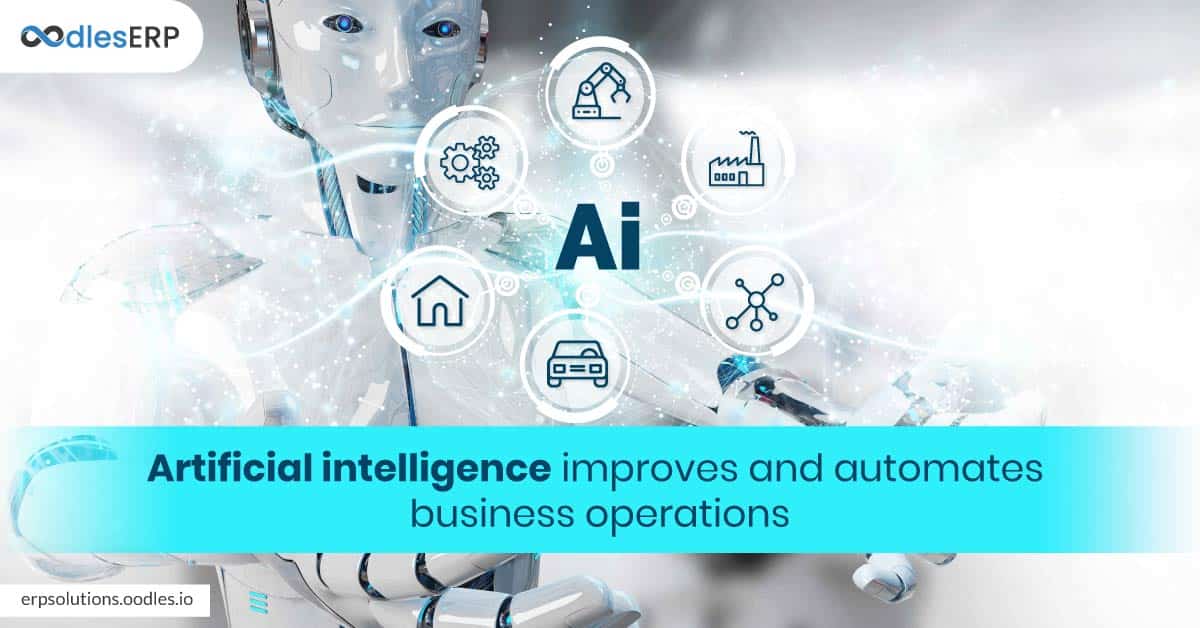Automating Business Operations with Artificial Intelligence
abhijit.c | 24th July 2019

From using navigation apps to smartphone assistants, our interaction with artificial intelligence is increasing steadily. It is a natural outcome of AI’s ability to improve efficiency and reveal new opportunities. AI is effective at streamlining several business processes across various industries. Tech giants like Google and Microsoft are continuously experimenting with AI to identify new applications and use cases.
Due to the wide adoption of AI, businesses of all sizes work with AI development companies to accelerate processes and improve decision-making. This blog post explores how AI is transforming business operations.
The far-reaching impact of artificial intelligence
AI tools and solutions can reduce costs by automating processes while improving customer experience. Companies are analyzing the extent to which they can apply AI in their business operations. They have identified the areas where AI can provide immediate benefits.
For instance, Knorr, a food division at Unilever, created an AI chatbot called Chef Wendy. It used to communicate through SMS and send recipes to hungry individuals based on the ingredients available at home. Surprisingly, customers were often unaware that Wendy is not a real person!
Similarly, AI and machine learning technologies have significantly improved the revenues of several leading businesses. The rapid proliferation of next-gen technologies has opened avenues to improve the end-user experience. They are enabling companies to boost revenues and enhance their reputation.
AI in different industries
Today, several leading companies are investing in AI and Big Data to transform their business operations. They are using a combination of AI and big data analytics to improve decision making and enable automatic learning. Let’s take a look at how AI is improving processes in different industries.
Finance
Financial services companies are rolling out AI systems to support customer service operations, undertake risk analysis, and overhaul sales and marketing processes. In financial services, RPA is used to extract customer information, ensure compliance with Know Your Customer (KYC) regulations and capture documents.
Financial services firms are leading the way in adopting artificial intelligence. Robotic Process Automation (RPA) is one of the leading technologies that include AI and cognitive computing. Companies can reduce operational costs and enhance productivity by automating repetitive and time-consuming tasks.
Retail
Artificial intelligence is making a steady impact to transform retail operations. Leading retailers are using it to cope with changing customer shopping behavior both offline and online.
Machine Learning (ML) and Natural Language Processing (NLP) are enabling retail companies to serve a large number of customers with ease. AI solutions that incorporate them provide valuable insights about customers and inventory which are difficult to generate with conventional mechanisms. They provide inputs retailers need to make strategic and tactical decisions.
Manufacturing
AI is playing a critical role in automating manufacturing processes to reduce costs and improve product quality. AI solutions are effective at connecting IoT devices used in manufacturing operations to maximize machine output and prevent mechanical failures. They serve as early warning systems to avoid breakdowns that can lead to significant losses.
Leading manufacturers are using machine learning mechanisms to achieve efficiency and improve the quality of their products with accurate error detection. It is enabling them to improve revenues and enhancing their reputation.
AI enables predictive maintenance to save time and resources by processing IoT device data to evaluate machine performance. Machines can report its condition in real-time while eliminating the guesswork and delivering optimal performance. Moreover, sensors and advanced analytics are embedded in the machines to respond to alerts and resolve machine issues.
Healthcare
Healthcare researchers are successfully using artificial intelligence to fulfill patient care requirements. The MarketsandMarkets study has estimated AI in healthcare to be worth USD 2.1 billion in 2018 that will grow to USD 36.1 billion by 2025. The CAGR for the forecast period is predicted to be 50.2%.
AI enhances the ability of healthcare professionals to better evaluate their patients’ health. It enables them to provide better guidance, support, and feedback to stay healthy and overcome illnesses. AI-based healthcare solutions are ideal for scheduling and planning appointments as well as the intake of medicines.
For instance, AI chatbots are helpful for patients to interact, schedule appointments, and seek medical support. A system trained on AI can detect rare pathogens in the human body and suggest dietary changes based on historical data. Doctors can begin early patient treatments as soon as an AI solution detects anomalies.
Summarizing AI and its advantages
Tech giants like Google, Apple, and Amazon are investing in AI technologies to transform processes and our lifestyle. AI can analyze and identify opportunities within your organization and transform processes with its innovative applications.
Transform your business with our AI app development services
We introduce AI in your business operations with smart applications developed by our Artificial Intelligence Services team. We are an artificial intelligence development company, who use the latest AI toolkit to develop solutions that deliver tangible results. Our services range from NLP, computer vision to predictive analytics and recommendation engines.
Get in touch with us to know how AI can transform your business. Click here to start.



